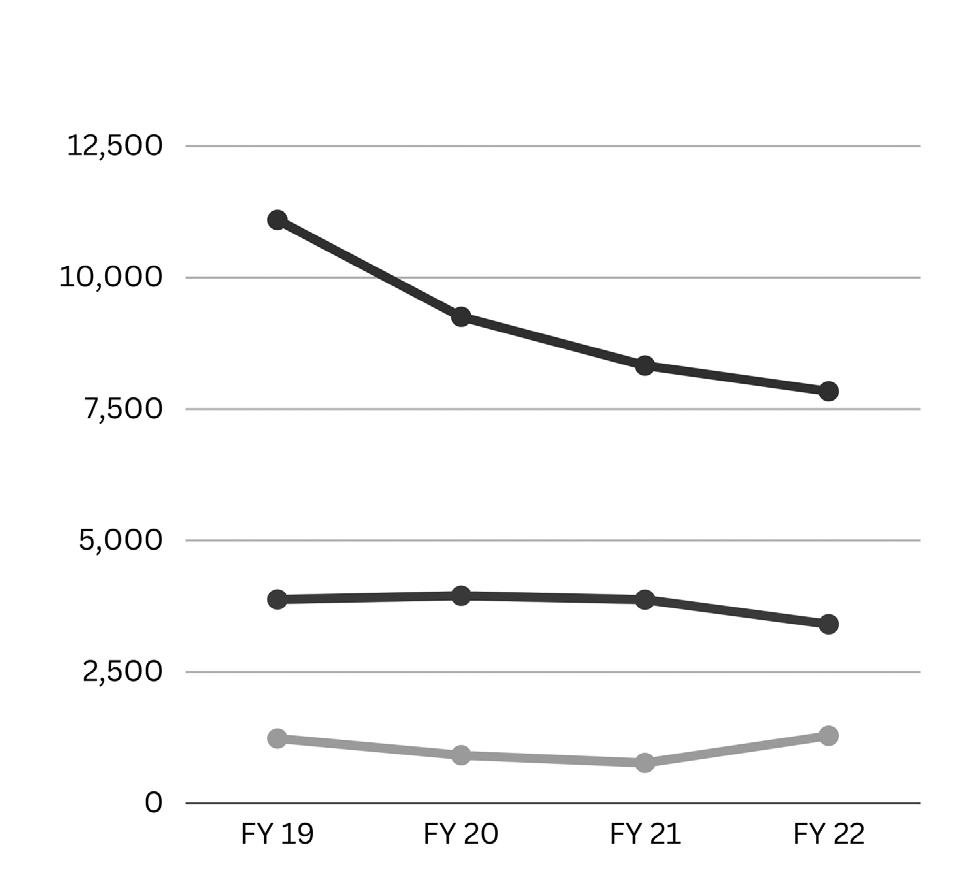
1 minute read
Homeless services for individuals do not meet demand
from 03.01.2023
ANNEMARIE CUCCIA Staff Reporter
D.C.’s housing options for individuals experiencing homelessness do not meet the demand, the city’s Interagency Council on Homelessness Director Theresa Silla testified at an oversight hearing on Feb. 23. For the city to be in a position to end individual homelessness, D.C. would have to house 3,400 people a year for the next six years, Silla said.
Advertisement
In fiscal year 2022, the city served 1,046 families and 7,834 individuals experiencing homelessness through outreach, emergency shelters and temporary housing. Another 6,000 families and 10,000 individuals relied on programs provided through the homeless services system, including diversion, Rapid Rehousing, Temporary Affordable Housing, and Permanent Supportive Housing.
Individuals served during FY22 and in 2022
PIT count v. Individuals who exit to permanent destinations in FY22
Ssm Family Updates
• March means a new month for the 20th Annviersary Vendor Sell-a-Thon. If you didn’t win in February, March can be your month! Get Customer Kudos for extra points. Flyers available in the admin office.
• Receive extra newspapers for referring someone you know to new vendor orientation. Every Tuesday and Thursday at 2 p.m.
Since 2016, D.C. has cut family homelessness by 80%. The city was able to do this, Silla argued, because it helps house hundreds more families each year than experience homelessness on any given night in that year, or, as Silla put it, “supply meets demand.”
For individuals, however, that trend is reversed. In 2022, at least 3,400 people were homeless on any given night, but only 1,280 entered permanent housing throughout the year. While the number of individuals experiencing homelessness decreases each year, progress is much slower than in the family system.
“Supply, who we are housing, is not meeting demand,” Silla said. “When you look at the singles scope, as compared to the family side, we’re nowhere near [it].”
Over the last few years, D.C. funded 3,000 vouchers to house individuals, but a lack of staff means only 860 people have moved into housing. The city’s outreach and housing programs likely wouldn’t be able to handle funding to house the 3,400 people each year that Silla thinks would bring D.C. closer to ending homelessness.
“Our capacity constraints are real, our existing workforce is exhausted from the pressure of the pandemic,” Silla said.





